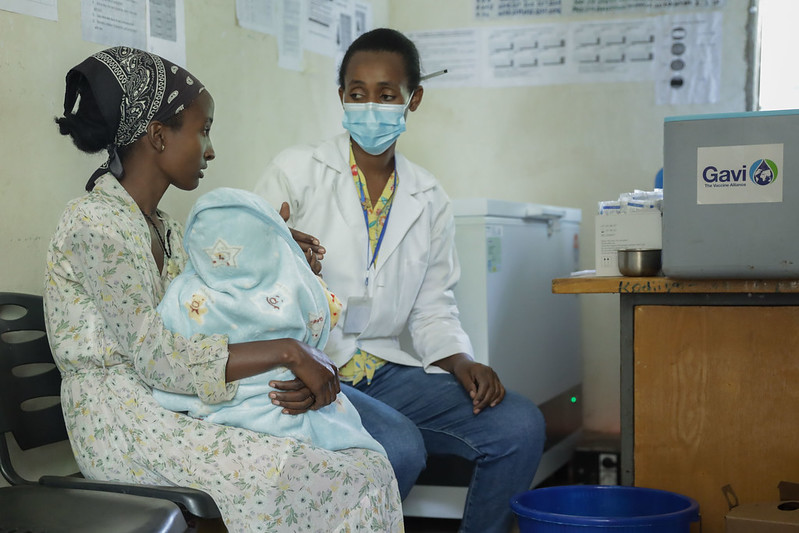Expanding Gavi’s Donor Network
 Gavi, the Vaccine Alliance, is expanding its donor network in preparation for planned cuts to foreign aid budgets by former core donors, including the U.S., U.K. and France. Gavi Chief Executive Officer Dr. Sania Nishtar recently met with officials in Rabat to encourage Morocco to join Gavi’s donor network. Hopes are high as Nishtar states that a Casablanca vaccine manufacturing plant would likely benefit from Gavi’s $1.2 billion African Vaccine Manufacturing Accelerator, a scheme intended to improve vaccine production in Africa.
Gavi, the Vaccine Alliance, is expanding its donor network in preparation for planned cuts to foreign aid budgets by former core donors, including the U.S., U.K. and France. Gavi Chief Executive Officer Dr. Sania Nishtar recently met with officials in Rabat to encourage Morocco to join Gavi’s donor network. Hopes are high as Nishtar states that a Casablanca vaccine manufacturing plant would likely benefit from Gavi’s $1.2 billion African Vaccine Manufacturing Accelerator, a scheme intended to improve vaccine production in Africa.
Gavi’s Existing Impact
- Child mortality halved: To date, Gavi has helped halve childhood mortality by vaccinating more than 1.1 billion children across 78 lower-income countries, reducing the incidence of deadly and debilitating infectious diseases to prevent more than 18.8 million deaths.
- Nation building: On a broader scale, Gavi aids nation building through vaccination: as populations become healthier, they are better able to economically and socially thrive. Every $1 invested in immunization in Gavi-supported countries between 2021 and 2030 could save $21 in health care costs, lost wages and reduced productivity from illness. When broader economic and social benefits are included, the return on investment rises to an estimated $54 for every $1 spent.
- Improved global health security: Gavi helps countries broaden vaccine coverage and improve their health systems.
Foreign Aid Budget Cuts
Gavi relies on donations from governments, foundations and private partners to fund its work delivering vaccines to the world’s most vulnerable children. However, former core donors France, the U.S. and the UK have all indicated that they plan to cut foreign aid spending in the coming years; hence, their pledges to Gavi remain uncertain.
The U.S. previously donated $300 million to Gavi annually but the country declared in March 2025 that it does not plan future spending, Reuters reports. On June 12, 2025, the U.S. House of Representatives passed President Donald Trump’s request to cut $9.4 billion from the U.S. foreign aid budget, $400 million of which formerly went to global health programs including Gavi. The bill is yet to be approved by the Senate, so until the decision deadline of July 18. It is unclear whether Gavi will receive its usual donation from the States.
U.K. Prime Minister Sir Kier Starmer has also announced that the U.K. government will cut foreign aid spending by £6 billion per year, redirecting the money to defense spending. The nation was previously mandated by law to spend 0.7% of GDP on aid, but the former Conservative government lowered this to 0.5% following the pandemic, and Starmer’s cuts lower it even further to only 0.3% of GDP. Therefore, it is probable that Gavi will not receive funding from the UK equal to the country’s previous investments.
Hopes for Brussels Global Summit 2025
From 2026-2030 (the Gavi 6.0 strategic period), Gavi plans to save at least 8 million lives through the vaccination of 500 million additional children. Global summit in Brussels on June 25, 2025 will bring together global leaders, partner organizations, vaccine manufacturers and private sector companies to secure at least $9 billion to fund Gavi 6.0.
Several countries have already announced their pledges:
- Croatia has pledged €1 million as a first-time core donor
- Portugal has pledged €2.5 million, signifying a 54% increase in the country’s contribution
- Indonesia has pledged $40 million
- Canada has pledged CAD 675 million
- The European Commission has pledged €260 million for the year 2026-2027 alone
Expanding Gavi’s Donor Network
These pledges are promising but in light of U.S. and U.K. cuts to aid, Gavi’s donor network needs to expand if it hopes to raise the $9 billion required for its ambitious new plan. To secure essential funding from Morocco, Gavi Chief Executive Officer Dr. Sania Nishtar recently met with officials in Rabat. During her visit, Nishtar toured a Marbio vaccine production site near Casablanca a biopharmaceutical initiative, Reuters reports.
Hopes for Moroccan funding are high as Nishtar noted that the facility stands a strong chance of receiving support from Gavi’s $1.2 billion African Vaccine Manufacturing Accelerator, which aims to enhance vaccine manufacturing capacity across the continent.
An Optimistic Outlook
In preparation for potential shortfalls in funding, Gavi has begun engaging more private sector partners, implementing cost-cutting measures, and exploring stronger partnerships with other global health organizations. Nevertheless, Nishtar anticipates that the contributions made at the June 25th summit will be sufficient to render these contingency plans unnecessary.
In light of Gavi’s critical work responding to the current global measles surge, cholera outbreaks in Sudan, South Sudan and Angola, and the growing spread of mpox in Sierra Leone, there is growing hope that the international community will recognize the indispensable value of Gavi’s efforts and respond with the generous support needed to sustain and extend its impact.
– Holly McArthur
Holly is based in Somerset, UK and focuses on Good News and Global Health for The Borgen Project.
Photo: Flickr
